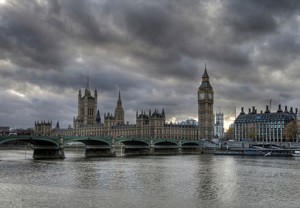On Wednesday night the proposed new law to criminalise squatting in residential properties (clause 130 of the LASPO Bill) was debated in the House of Lords. This was, in fact, the first time the clause has been properly debated since it was proposed. Or rather, the first time since the 1st November when the government slipped the clause into a bill which was in its last stage in the House of Commons.
Leaving no opportunity for scrutiny by MPs, and disregarding the results of their own consultation process in which 96 percent of respondents opposed criminalization, this was a cynical and barely-democratic move by the government.
Nevertheless, in the House of Lords debate Baroness Sue Miller, Baroness Stern, Lord Judd and Lord Bach all spoke in opposition to the clause. Some key points were convincingly made by all of them.
Firstly, all the peers that spoke against the clause agreed that the existing law adequately protects property owners and that a new criminal offence would be nothing but a form of propaganda. People displaced from their homes by squatters are already fully protected by the 1977 Criminal Law Act that protects displaced residential occupiers (DROs) and protected intending occupiers (PIOs) by making it a criminal offence to squat someone else’s home.
Lord Bach (Labour’s Justice spokesman) said “It is very telling that the Metropolitan Police, the Bar Council and the Law Society, none of which are natural friends of the squatting community, all think that bringing this particular legislation is completely unnecessary.”
Baroness Stern, a cross-bencher, clearly stated that the creation of a new criminal offence, far from being a solution to an unclear issue, also contradicts the Government’s promise not to create new unnecessary offences.
Secondly, both Baroness Miller (Lib-Dem) and Lord Bach (Labour’s Justice Spokesman) argued that, given the existence of a clear law on squatting related issues, the new offence appears to be motivated by the negative and manipulative press campaign that some newspapers have been waging over the past year.
As SQUASH has highlighted, newspapers such as The Evening Standard and The Daily Mail have repeatedly printed highly distorted reports which have demonized squatters by presenting, as Lord Bach acknowledged, sad stories of people who had been deprived of their house and who were powerless in facing the situation.
What has always been omitted in these “reports” (together with the fact that, as Baroness Miller said, “the instances of squatters trying to establish themselves in someone’s home are minuscule”) is that eventually all these cases turned out to be situations in which the existing law could have been, or actually had been, successfully applied.
“Perhaps a hint [to understanding the Government’s reasons to change the law] came in the signature leaks to the media” Lord Bach said, speaking about the fact that the Ministry of Justice have played an active part in this misinformation campaign by briefing the press on these misrepresented stories.
Another controversial aspect of the law clearly expressed within the House of Lords debate is that the Government are ignoring the increasing evidence that criminalisation will hurt the most vulnerable. As Lord Bach said “we know…that there is a significant prevalence of mental health problems, learning difficulties and substance addiction among those who are homeless”, as the Government’s own impact assessment also acknowledges. Research by Crisis shows that 40 percent of single homeless people have turned to squatting.
Clause 130 proposes that criminalising homeless people, and pushing them through the criminal justice system, is an acceptable response to survival strategies deployed in the midst of a housing crisis.
This “cynical and cold-blooded approach”, as Lord Judd defined it, motivated, as Lord Bach said, by “pure populism”, is going to have terrible consequences for the most vulnerable people, and for the homelessness providers, charities, and local authorities directly involved with homelessness and housing issues. “It is demonisation of the poor by another method” added Bach.
These are some of the many problems with clause 130 passionately raised in the House of Lords debate. The Minister of State, Lord McNally, was left appearing rather confused and lacking arguments in his answers on these issues. The impression that the Government has attempted to score a few ‘populist points’ out of a delicate question is now stronger than ever.
Peers from across the spectrum seem keen to oppose the clause by endorsing the spirit of Baroness Miller’s amendment to exclude long-term empty property from the proposals.
http://www.squashcampaign.org/2012/02/lords-knock-coalition-squat-plan/

